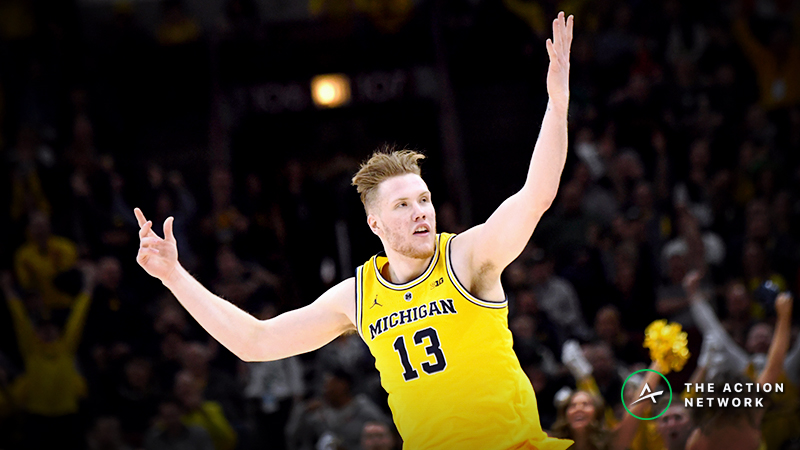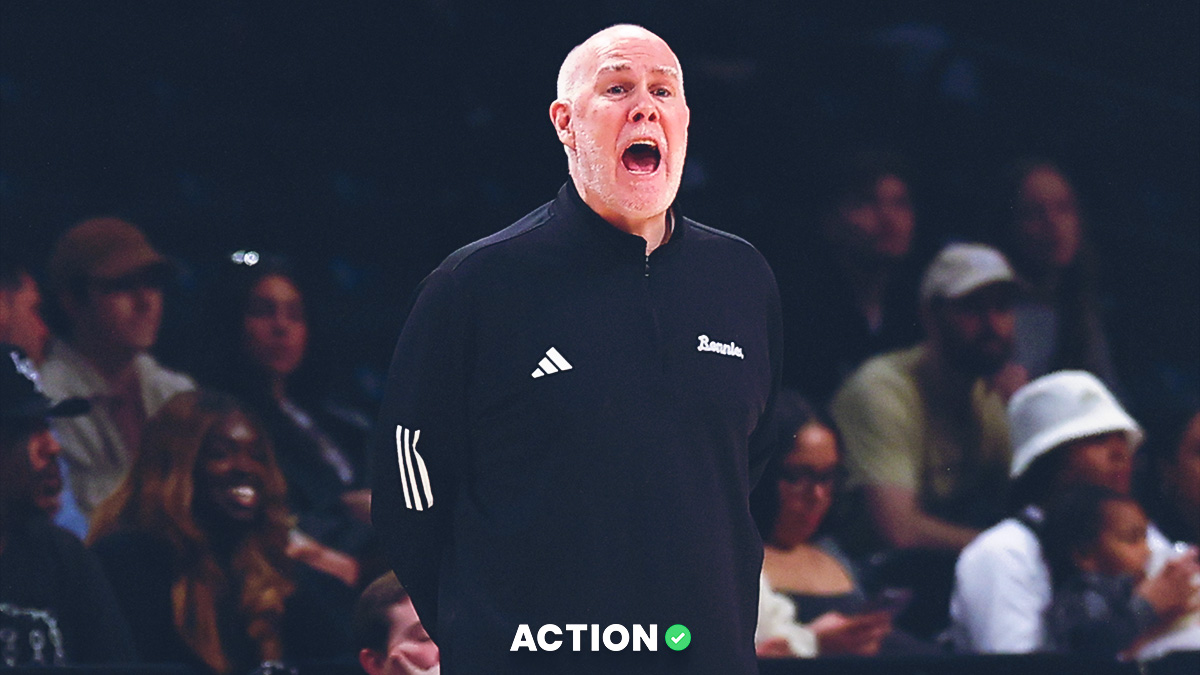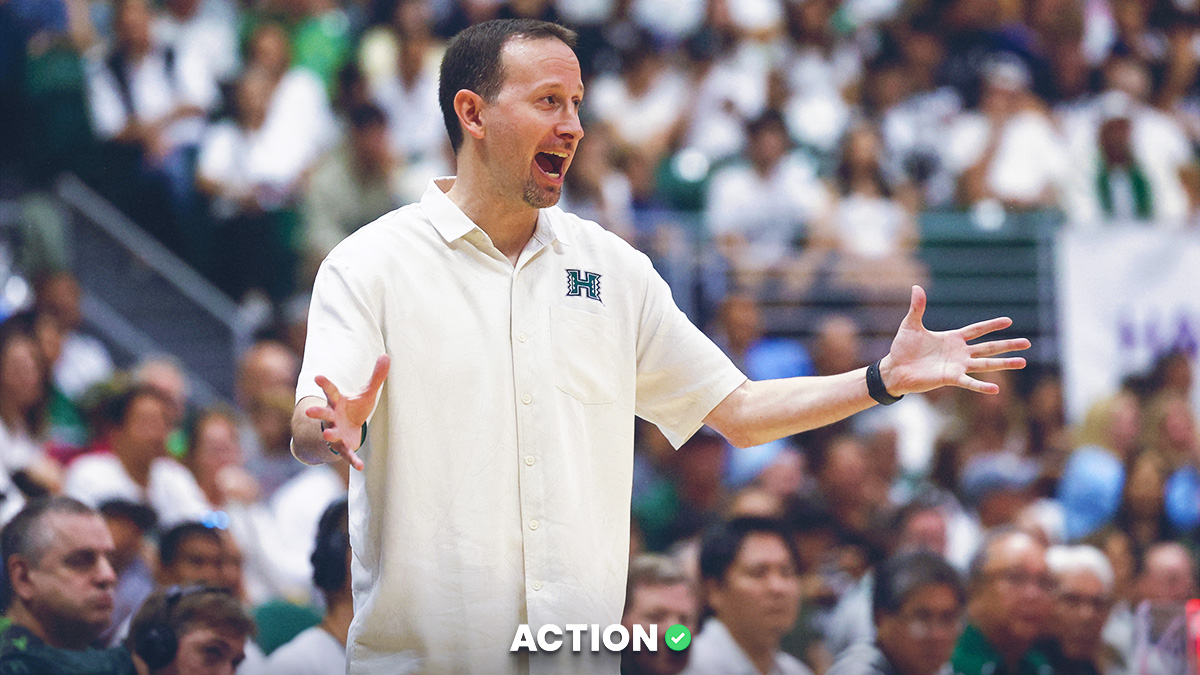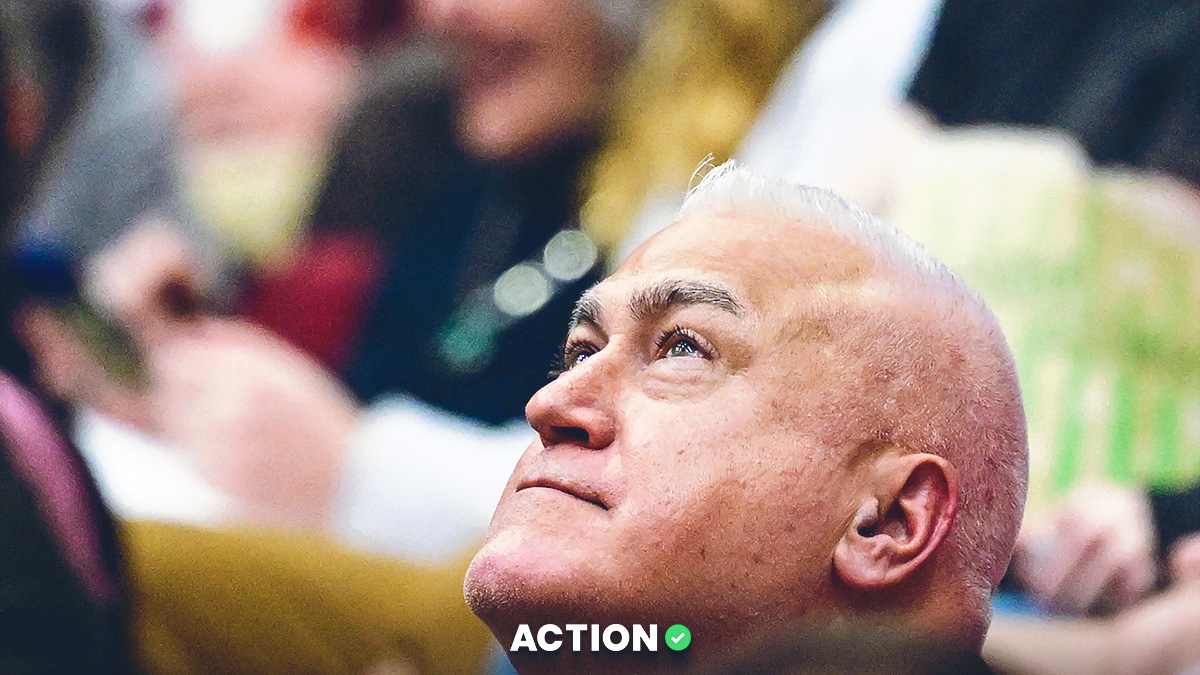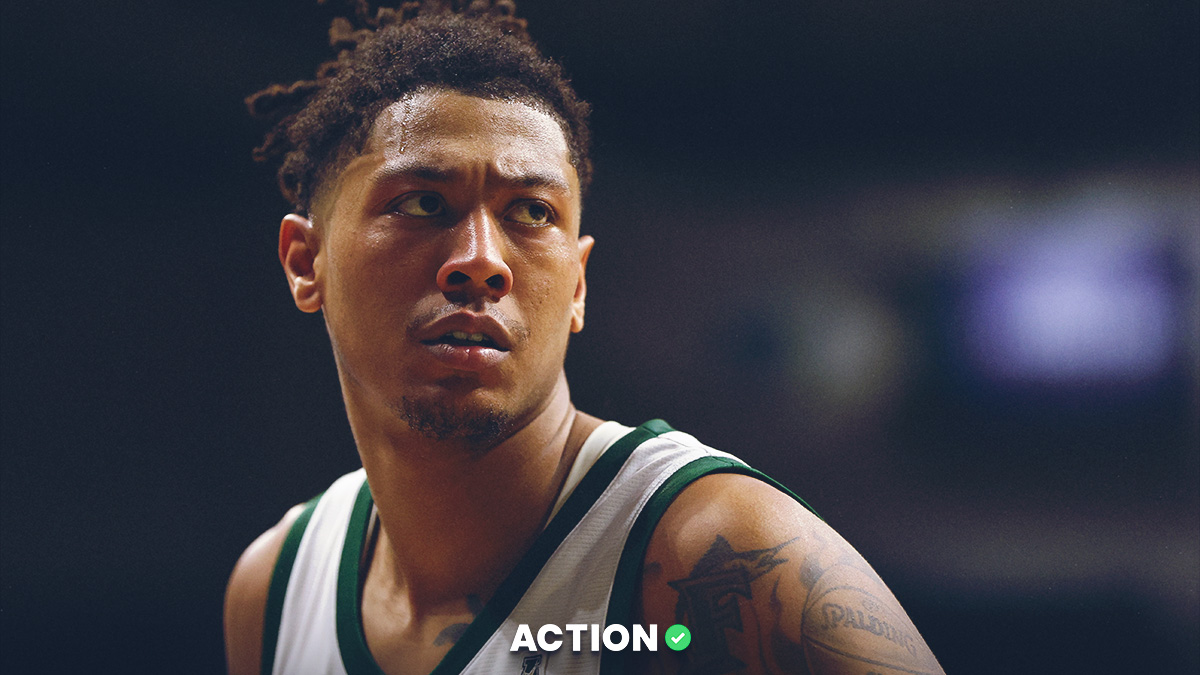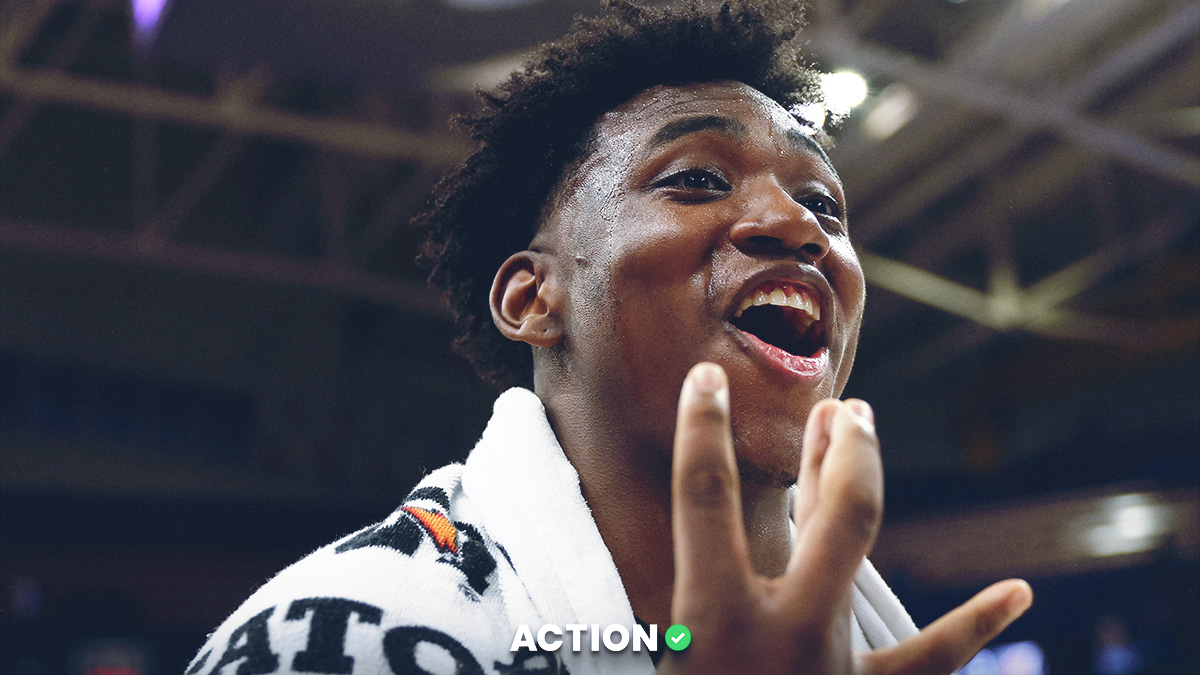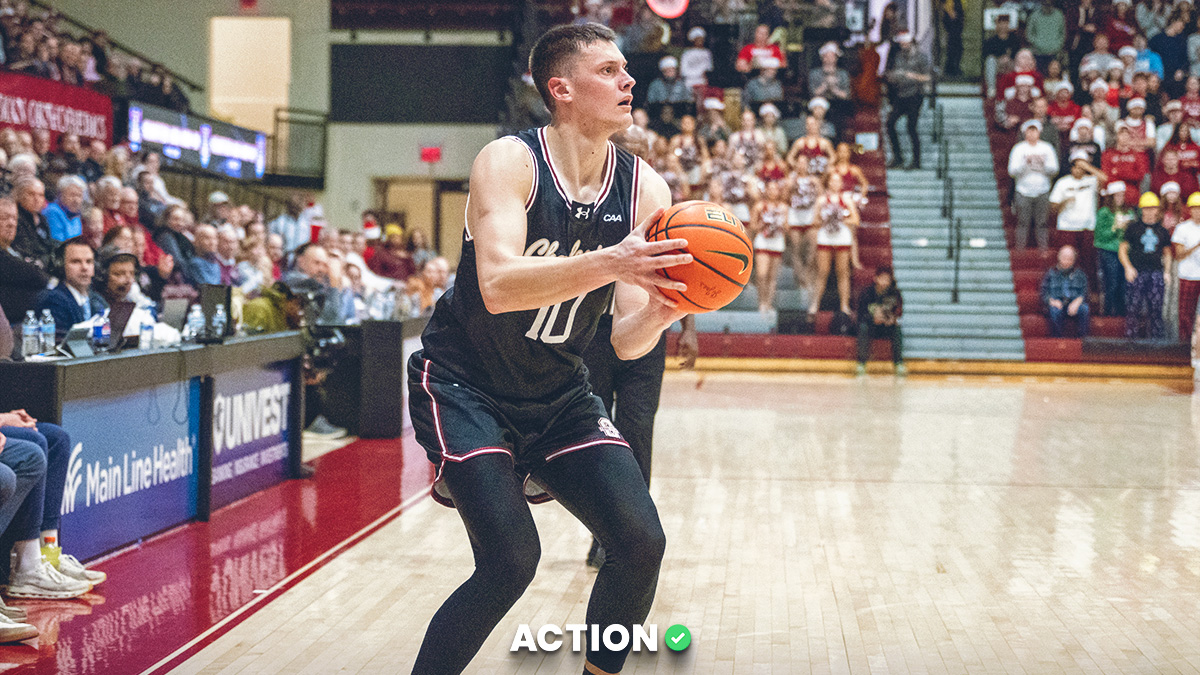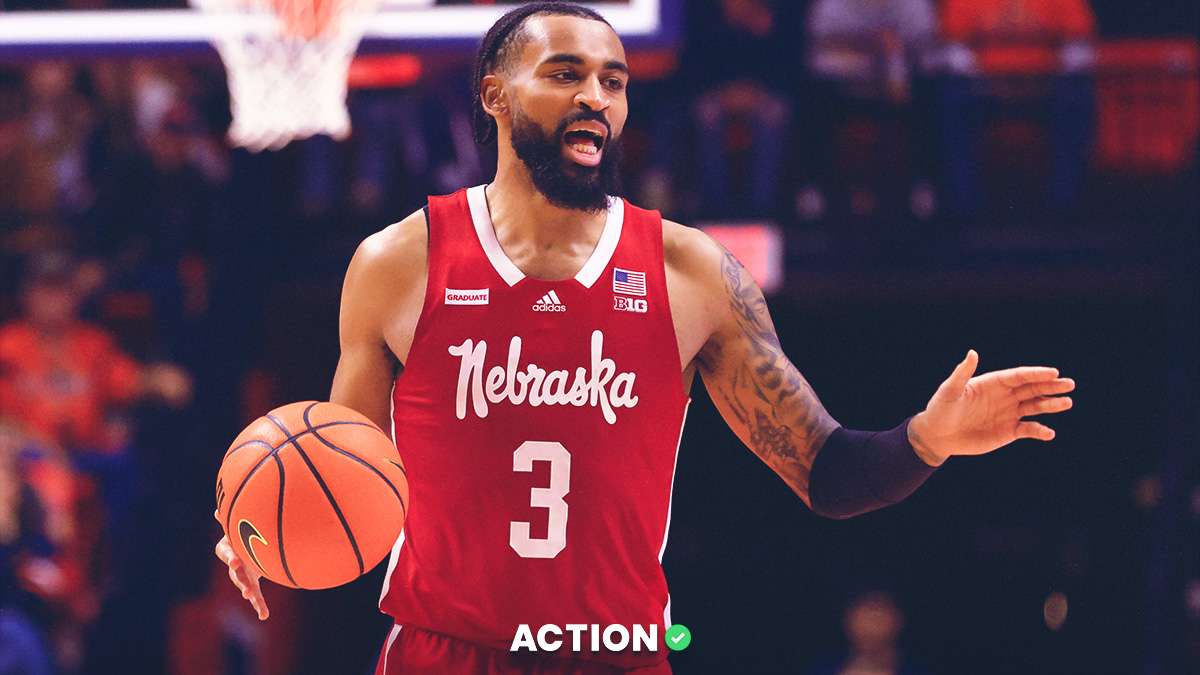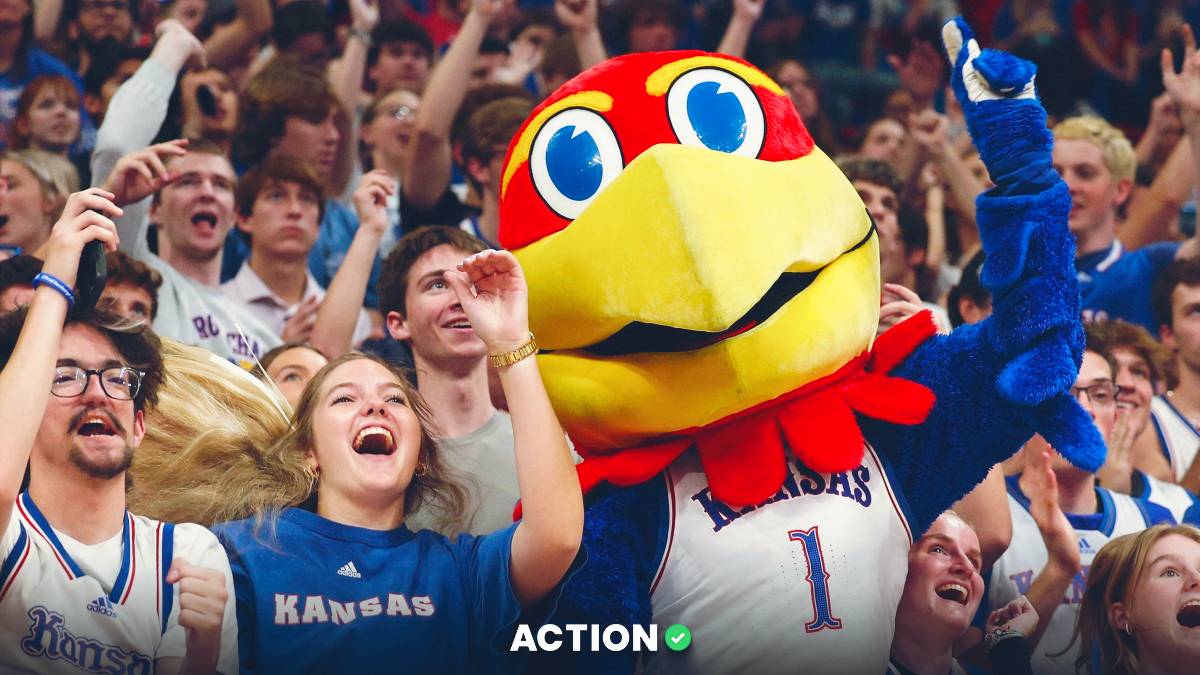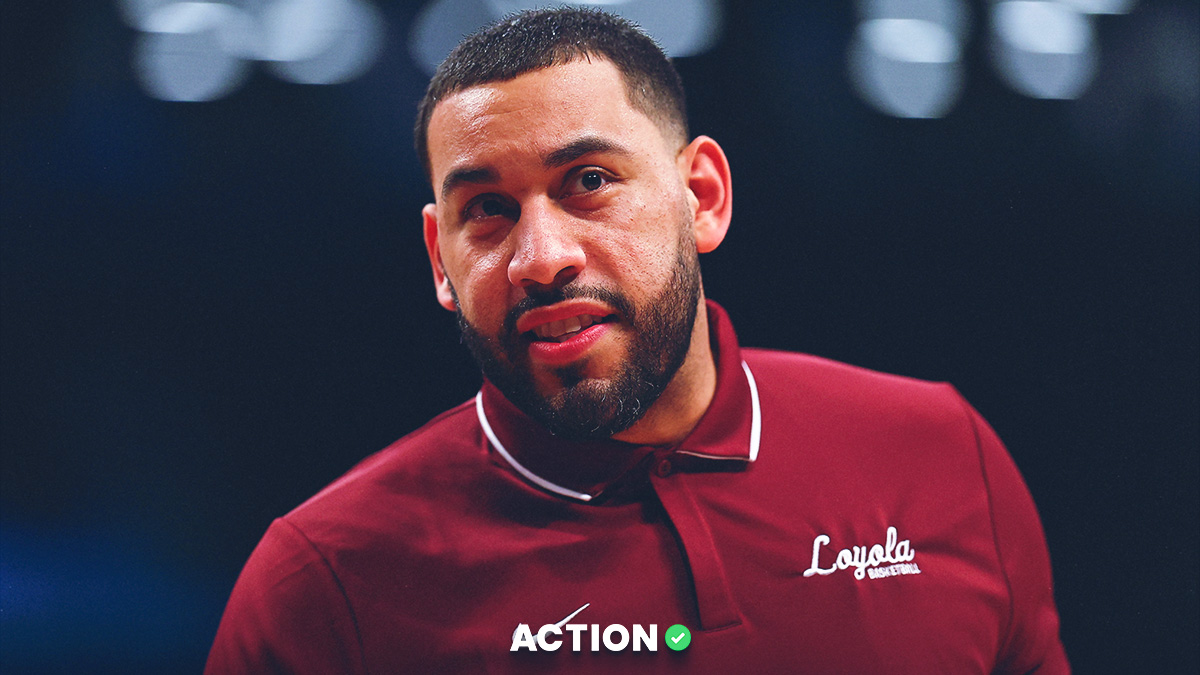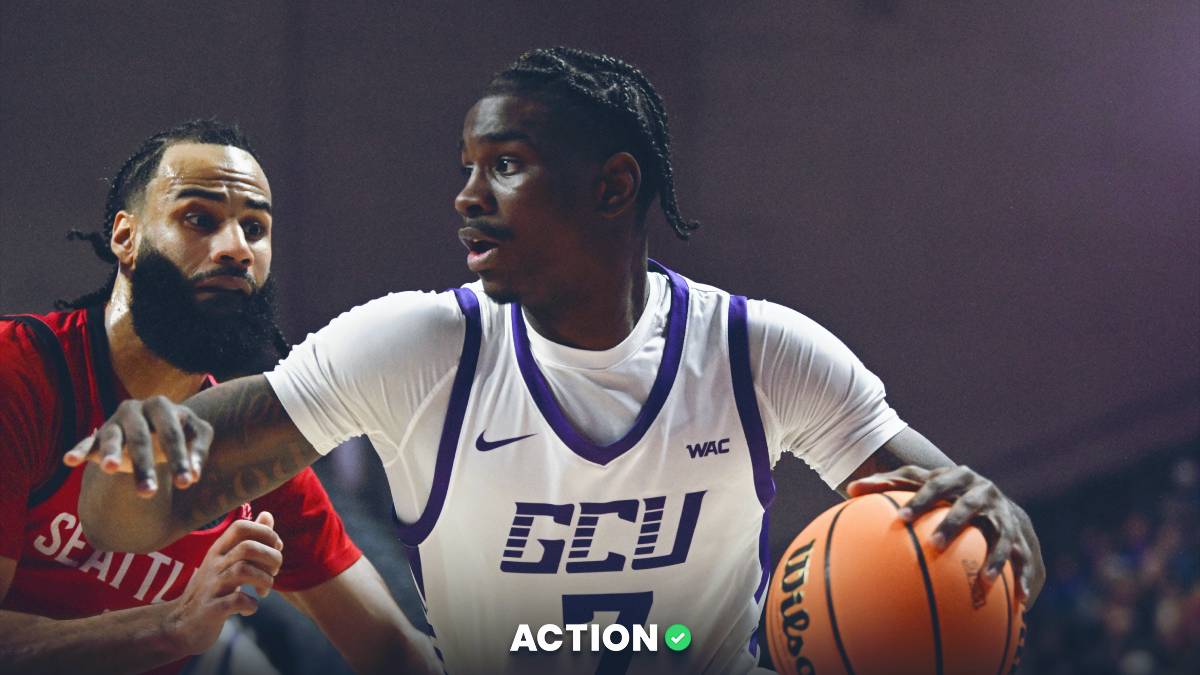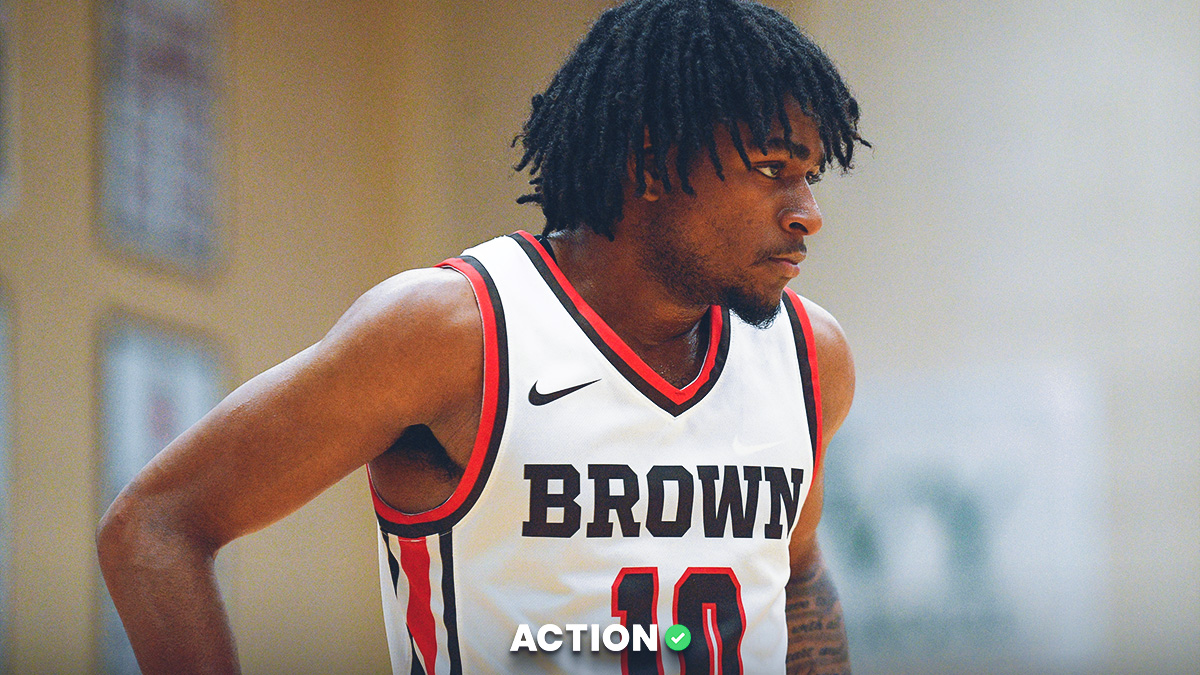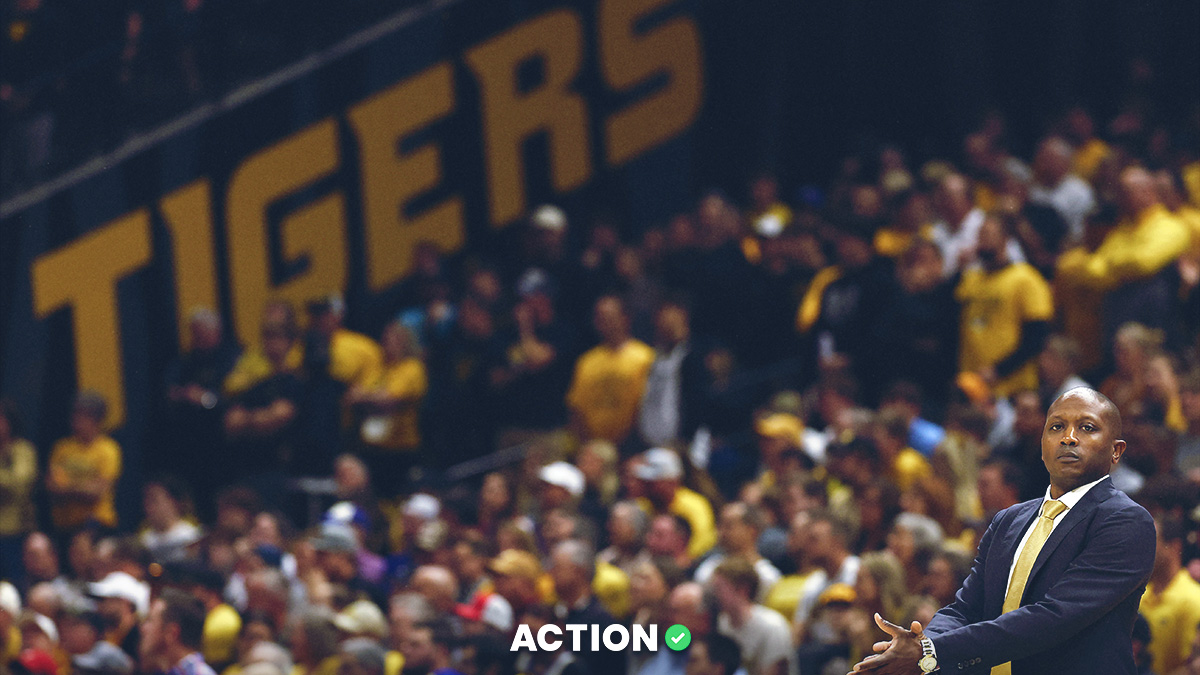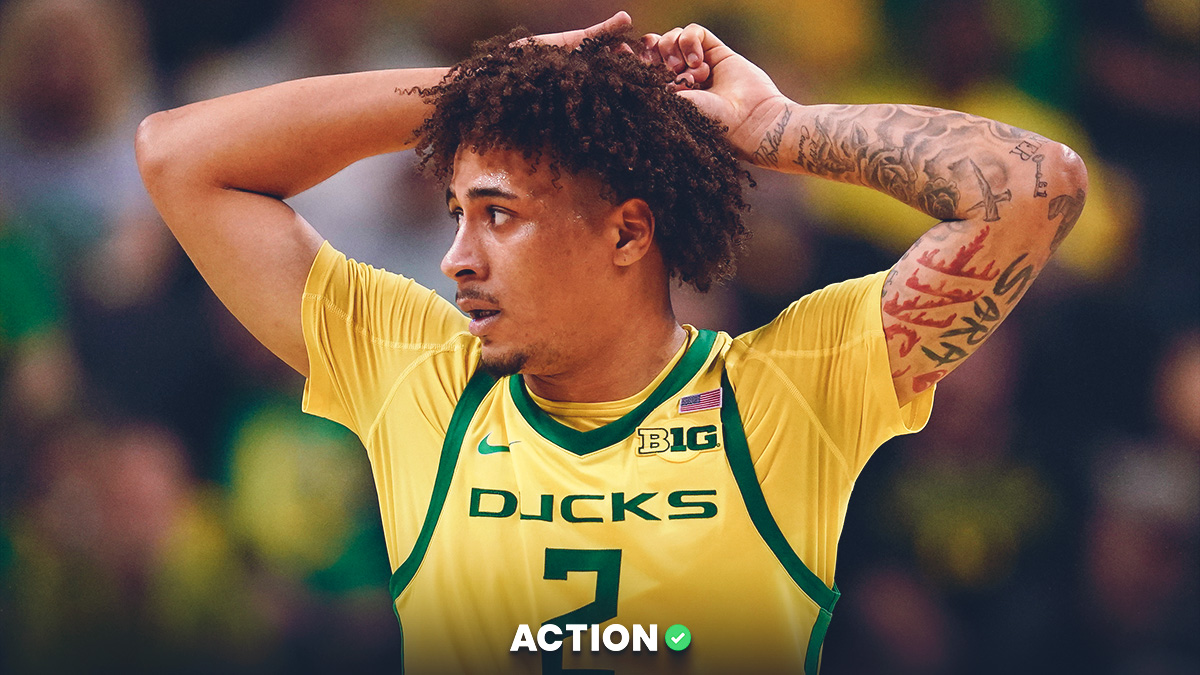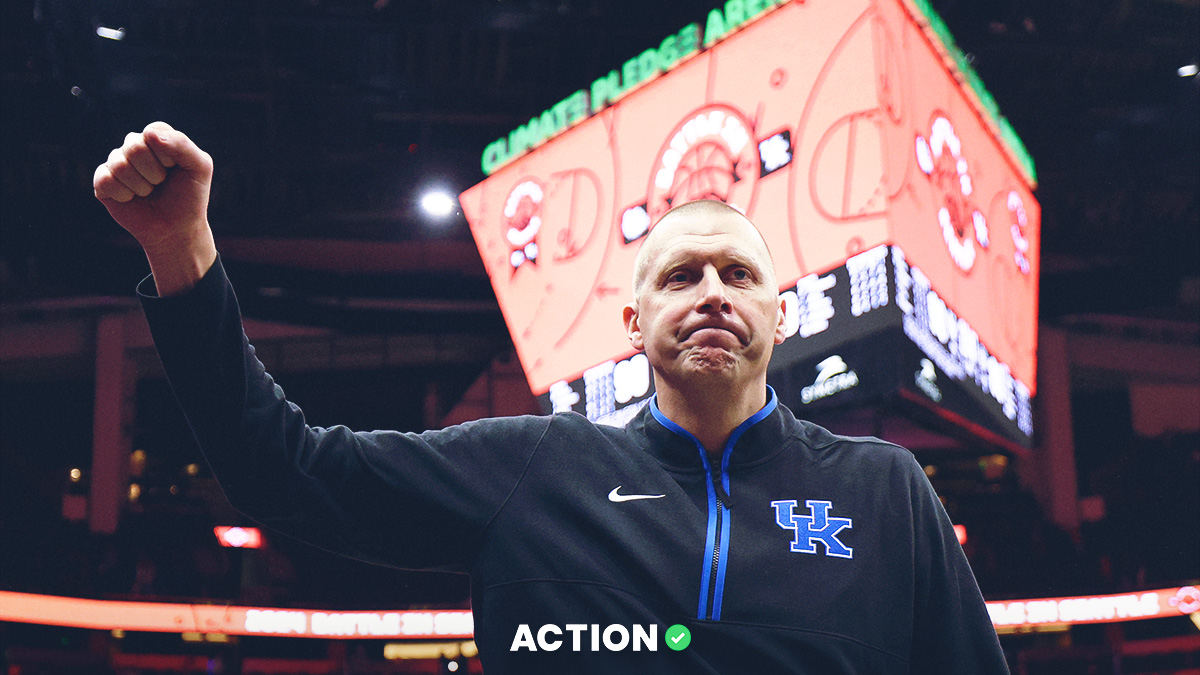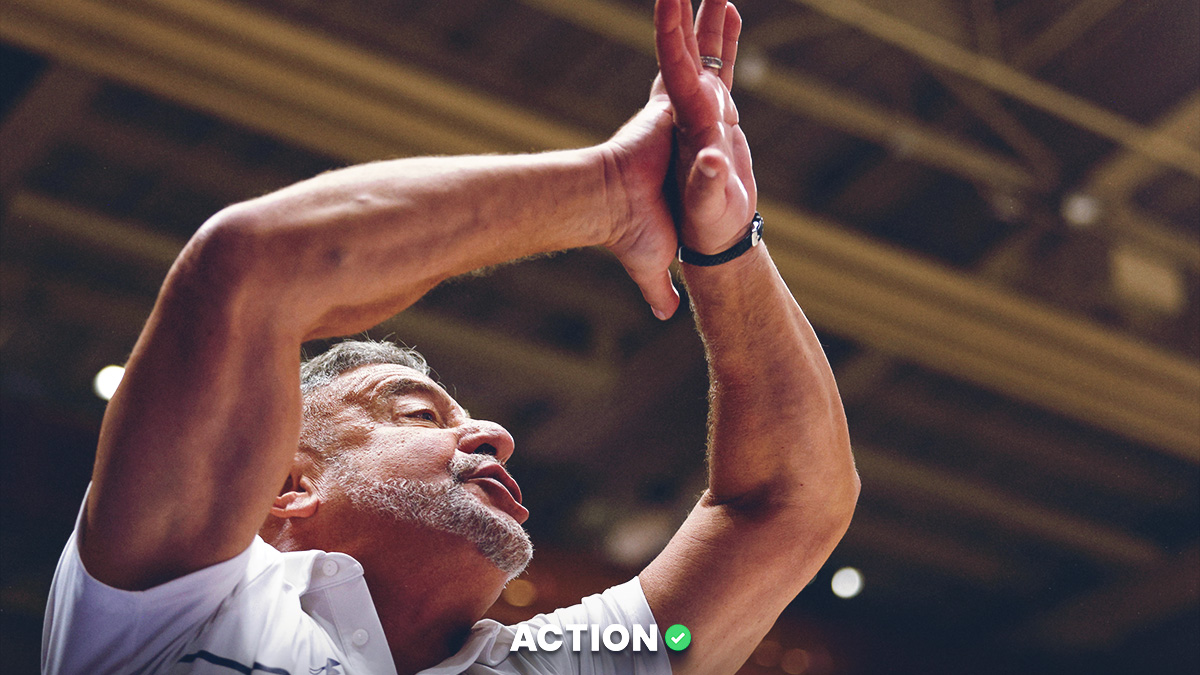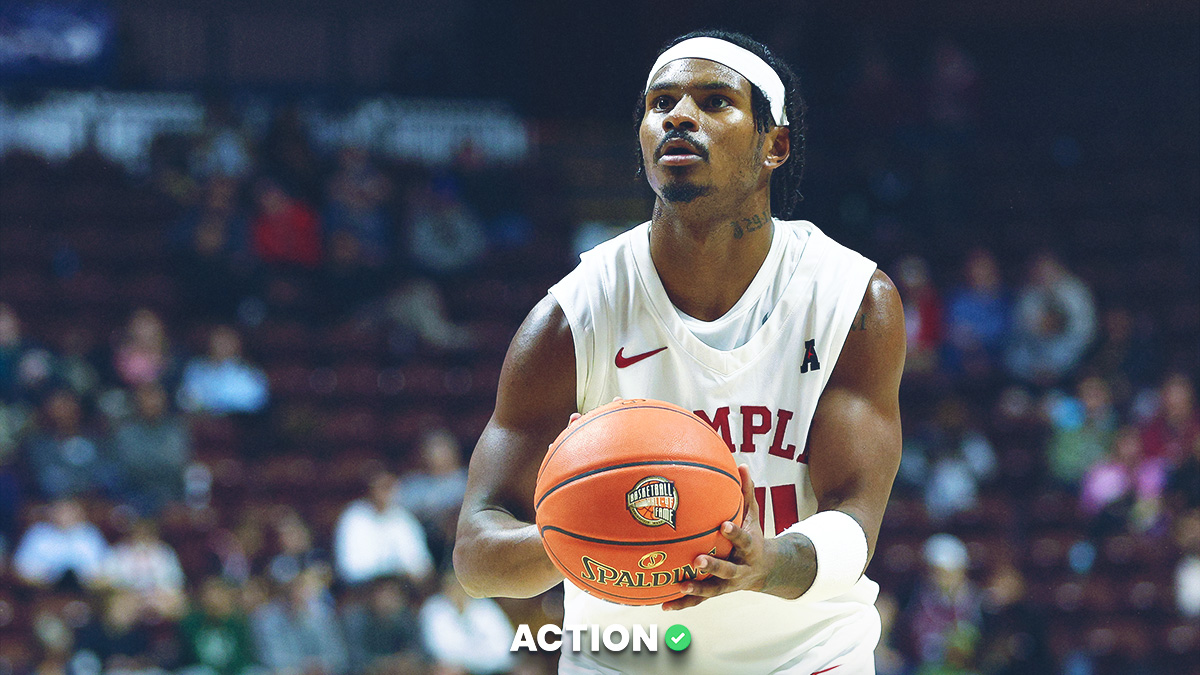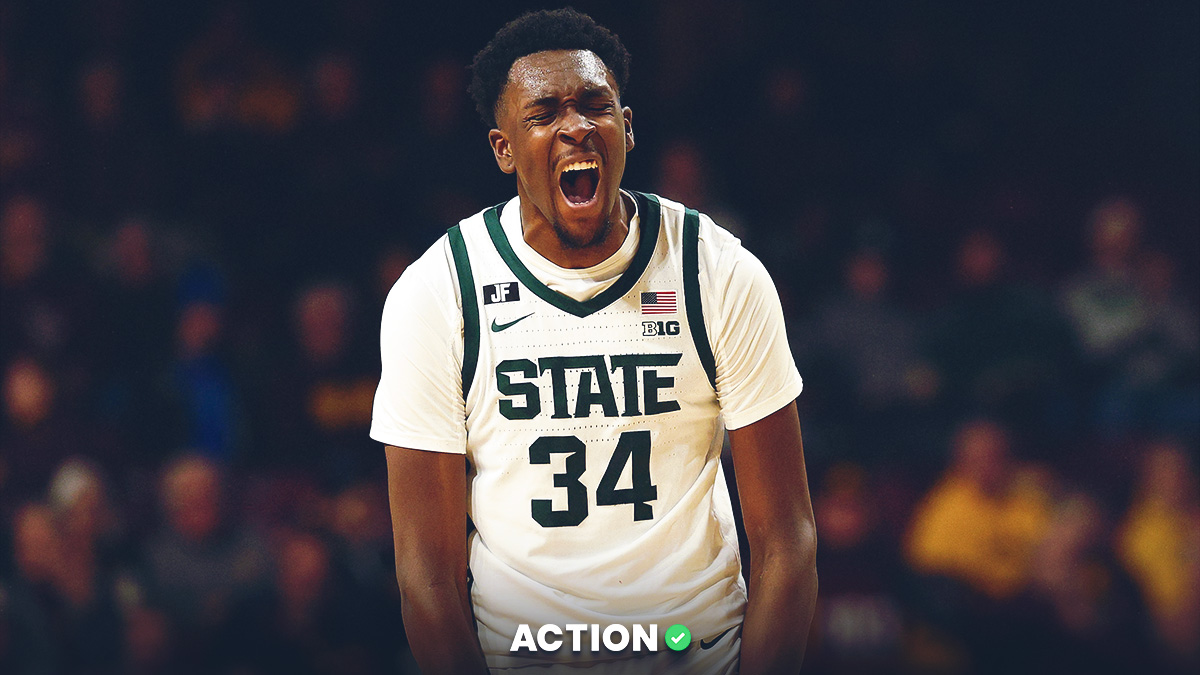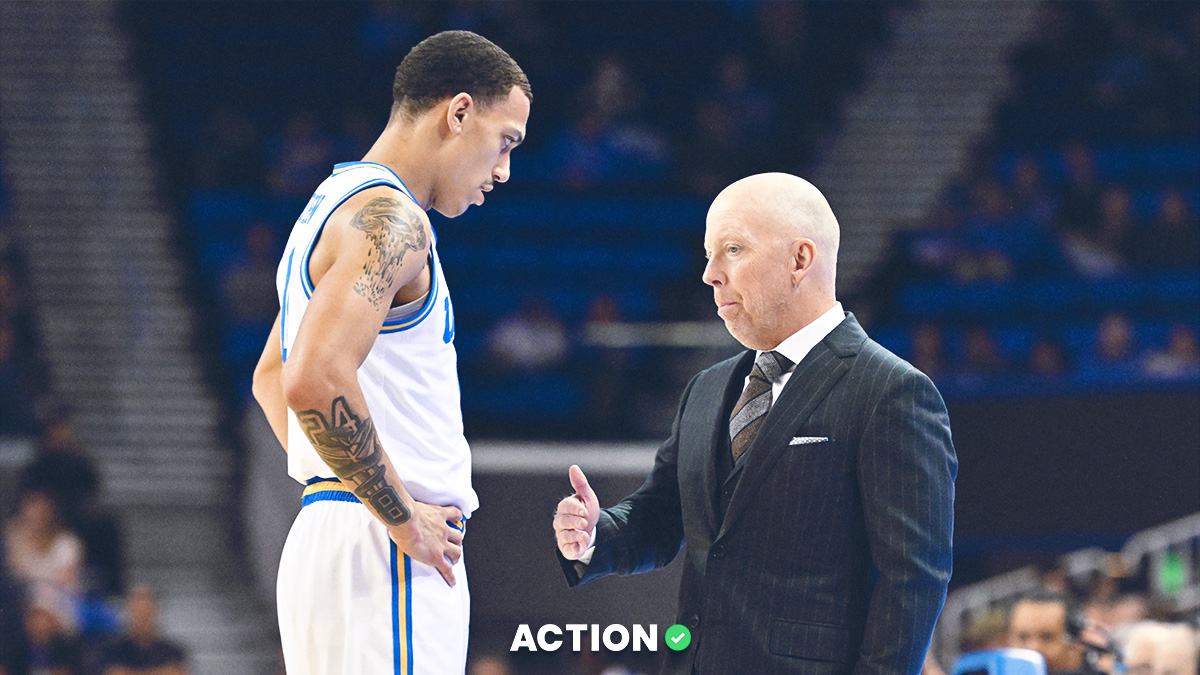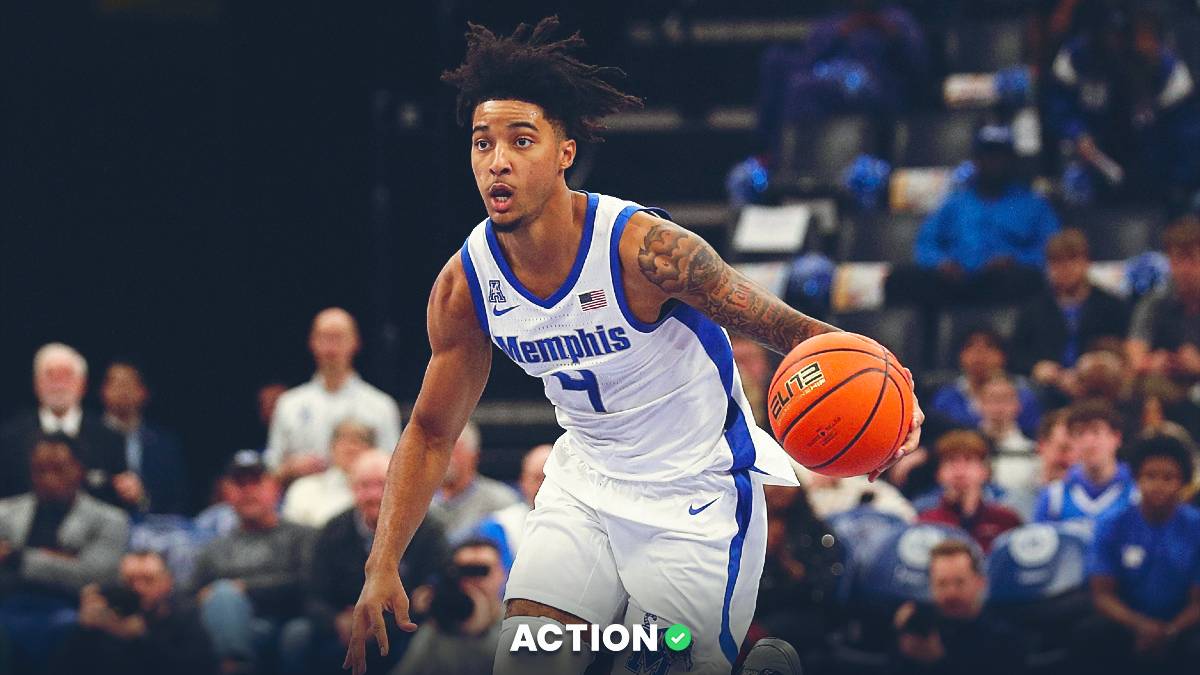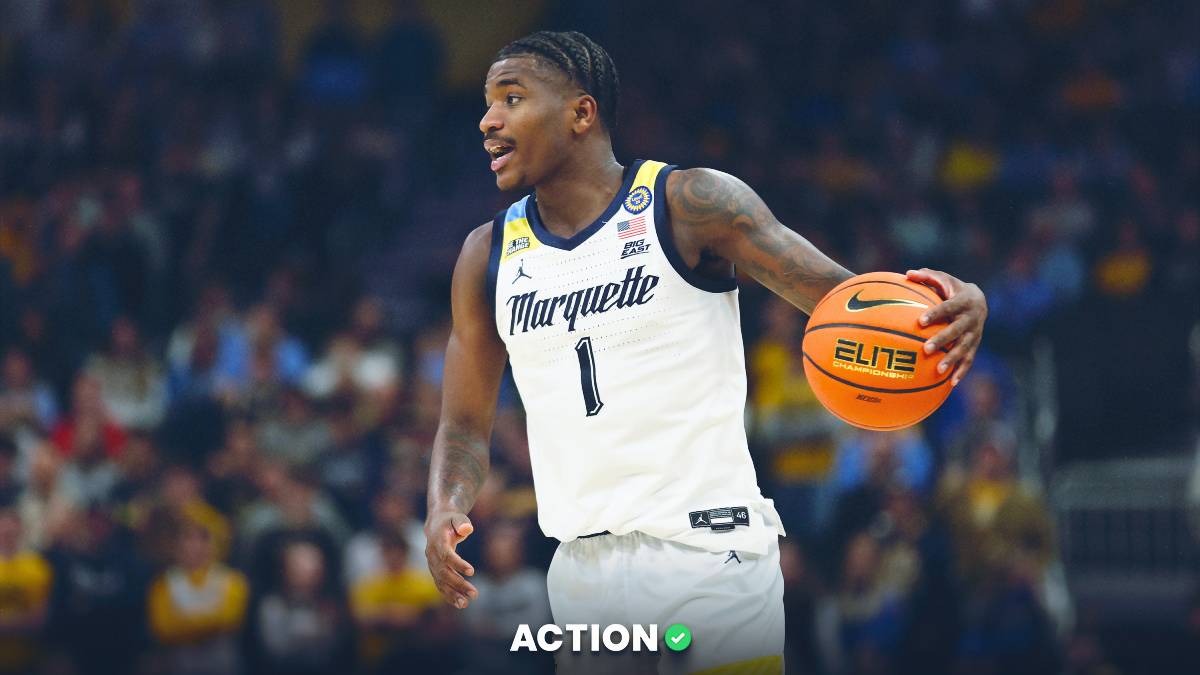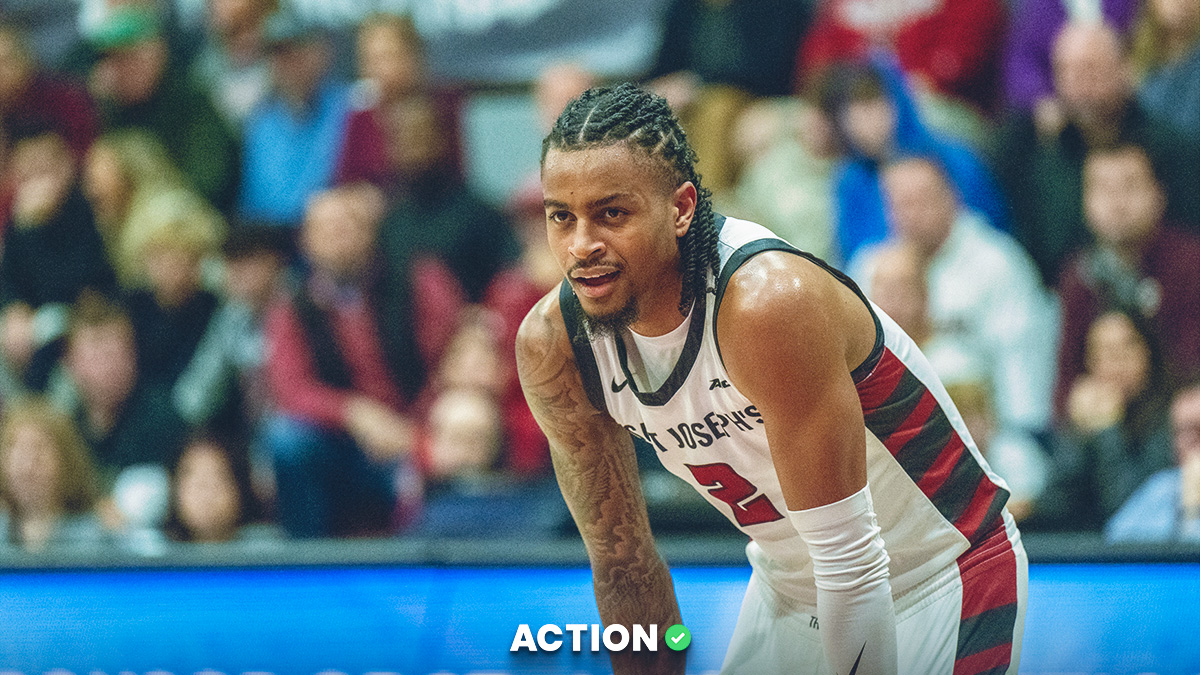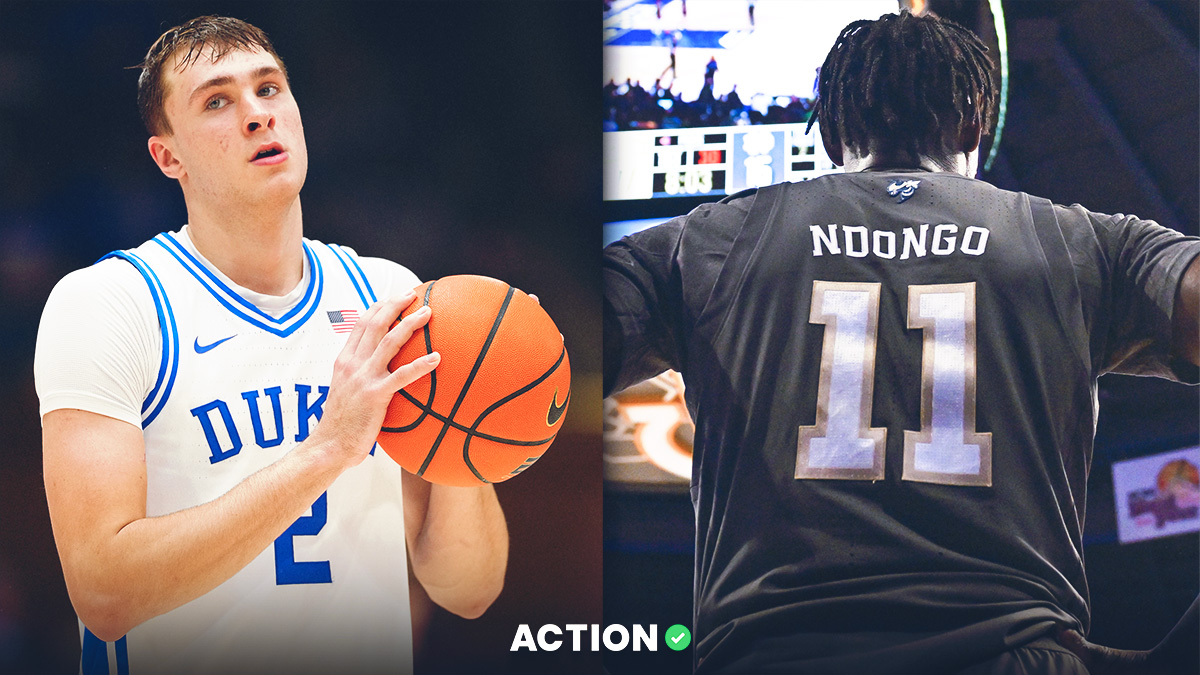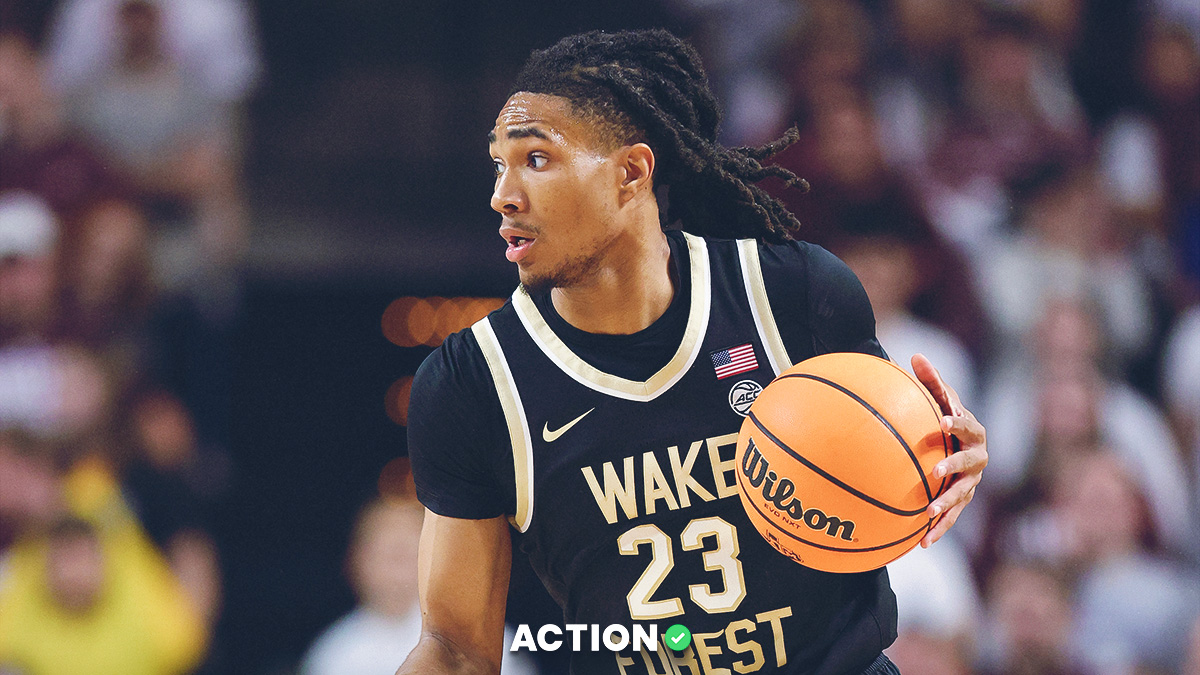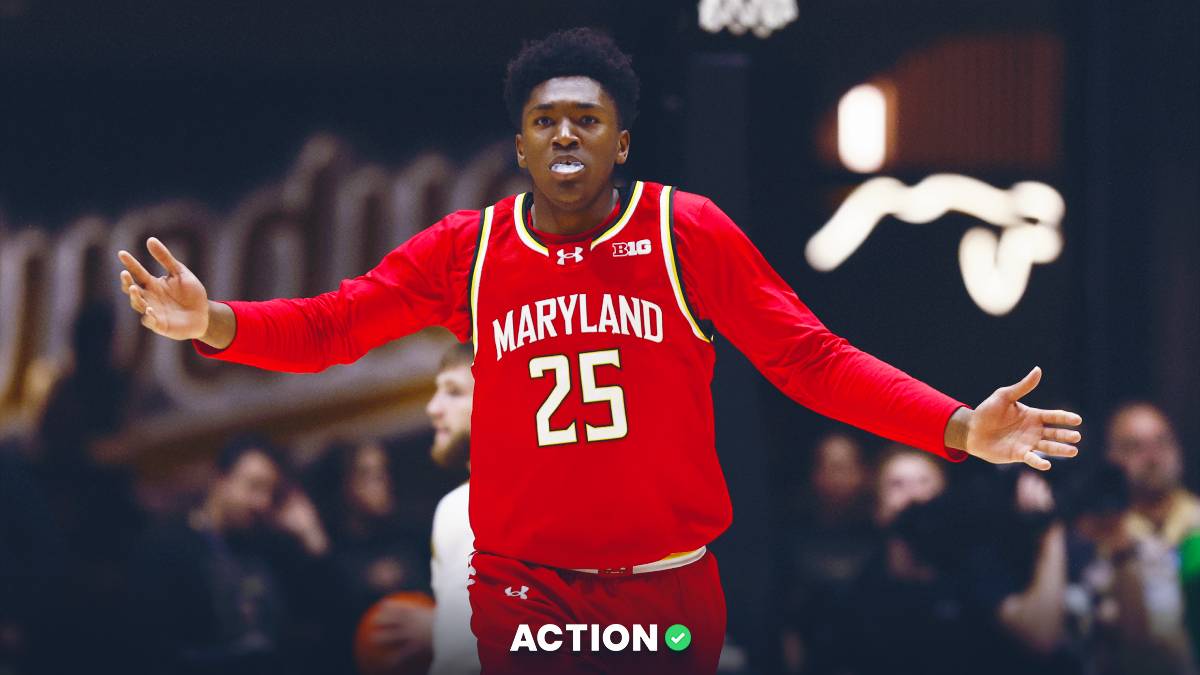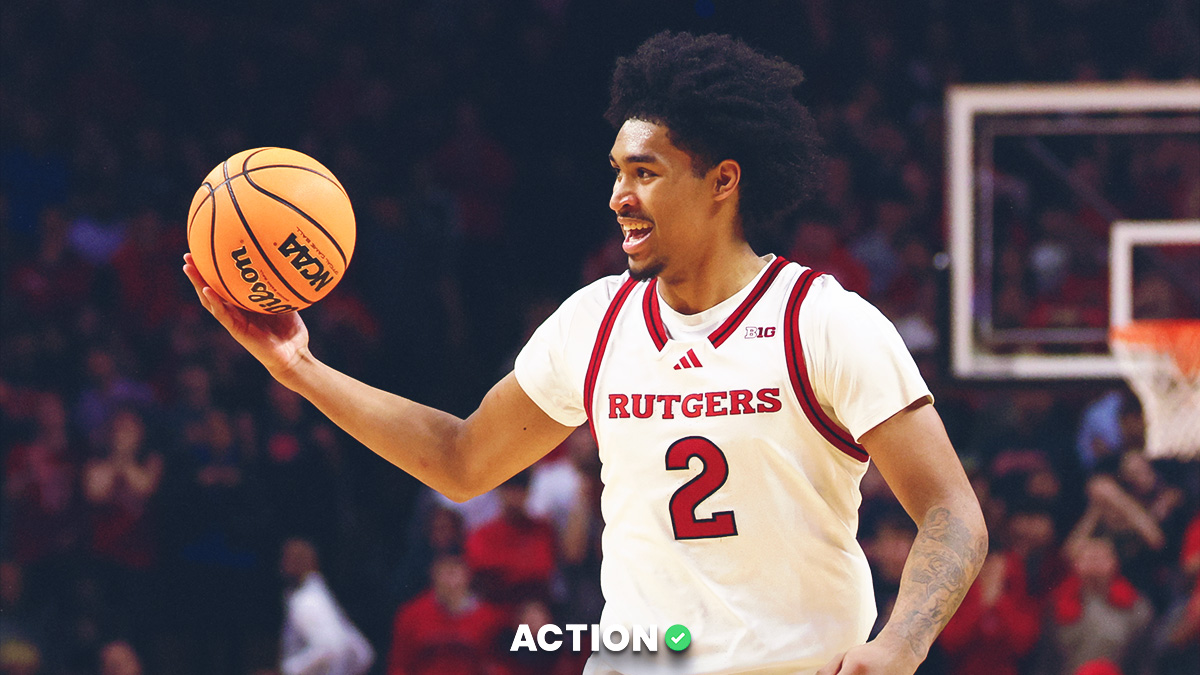Each day, I publish at least one quick-n’-dirty piece highlighting a favorite prop of mine. See my master list of 2019 prop bets for more information.
In this piece I’m highlighting my favorite NCAA Tournament player props for Thursday's Sweet 16 games. Note that I will be updating this piece throughout the day.
For March Madness, I am 42-27-1 (+9.61) on player props. If you want more information, check out the piece on my March Madness prop-betting strategy.
You also should look at our live betting odds page for up-to-the-minute lines.
For daily player props outside of college basketball, follow me in The Action Network app.
2019 Year-to-Date Record
375-297-13, +55.92 Units
- NFL: 21-13-0, +11.72 Units
- NBA: 214-158-4, +35.57 Units
- NHL: 66-80-7, -7.57 Units
- Golf: 4-7-1, -2.35 Units
- NASCAR: 5-8-0, -1.70 Units
- NCAAB: 42-28-1, +8.61 Units
- NCAAF: 0-1-0, -1.00 Units
- Exotic: 23-2-0, +12.64 Units
#2 Michigan vs. #3 Texas Tech
- Spread: Michigan -1.5
- Over/Under: 124.5
- Location: Anaheim, Calif.
- Time: 9:39 p.m. ET
- TV: CBS
Michigan F Ignas Brazdeikis: Over 14.0 Points (+105)
Brazdeikis leads the Wolverines with 14.8 points per game, and in what is likely to be a close game, I expect him to play a lot of minutes: In his one postseason game that wasn't a blowout (a five-point loss to Michigan State in the conference tournament), Brazdeikis played 38 minutes.
Michigan is implied for just 63 points, compared to the 70.31 it's averaged this season, but I still expect Brazdeikis to get his opportunities to score with the extra playing time.
In his 21 games with 30-plus minutes, he's averaged 17.2 points.
Michigan G Zavier Simpson: Under 8.0 Assists (-130)
Simpson easily leads Michigan with 6.8 assists per game: The player who ranks second has a meager mark of 2.1. Within the Wolverine offense, Simpson is a facilitation-focused player.
But Michigan is likely to score fewer points than it typically does: Texas Tech is second in the nation in opponent scoring, holding opposing teams to just 62.6 points per game.
With fewer points, there will be fewer assists for Simpson to get, and he's had eight or fewer assists in 26 of his 36 games (72.2%) this season.
Texas Tech G Jarrett Culver: Over 7.0 Rebounds (+127)
Culver leads the Red Raiders with 6.5 rebounds per game, and in his three postseason games he's averaged 34.4 minutes, compared to his 31.9 minutes in the regular season.
I have him projected for 6.9 rebounds, so I'll take the plus money in what essentially looks like a coin flip.
Texas Tech G Matt Mooney: Under 4.0 Assists (-156), Under 1.5 Made 3-Pointers (-135)
Texas Tech is implied for 61.5 points, which is far less than the 73.2 points per game it has averaged this season.
So there will be fewer points, assists and made 3-pointers to go around, which will impact Mooney, who chips in as an all-around contributor: He's second on the team with 3.3 assists per game and third with 10.9 points and 1.2 3-pointers.
He has seen a slight boost in playing time in the postseason (32.3 minutes per game vs. 30.2), but it probably won't be enough to make up for Tech's expected decline in scoring.
I have Mooney projected for 3.0 assists and 1.1 3-pointers.
#1 Virginia vs. #12 Oregon
- Spread: UVA -8.5
- Over/Under: 119
- Location: Louisville, Kentucky
- Time: 9:57 p.m. ET
- TV: TBS
De'Andre Hunter: Over 4.5 Rebounds (-114), Over 2.5 Free Throws (-155)
Although the Cavaliers have a balanced offense in which no one guy dominates, De'Andre Hunter might be Virginia's most important player. He's first on the team with 15.2 points and 4.2 free-throw attempts per game and second with 5.0 rebounds.
His playing time in the postseason has jumped up to 35.0 minutes per game from the 31.2 he averaged in the regular season. He played just 30 minutes last game because he had five fouls, but in his three other postseason games he's averaged 36.7 minutes.
With the enhanced playing time, he's a good bet to hit the overs. I'm projecting him for 5.1 rebounds and 3.2 free throws.
Kyle Guy: Over 14.5 Points (+114), Over 2.5 Made 3-Pointers (-120)
The Cavaliers are implied for just 63.75 points, compared to the 71.56 per game they've averaged this year. We should expect to see fewer points overall for Virginia.
But Kyle Guy is an ironman. In the regular season, he averaged 34.2 minutes per game, and in the postseason he's bumped that number up to 38.3.
He's a close second on the team in scoring with 15.1 points per game, and he's first by a mile with 7.2 attempts per game from 3-point range.
Because of his increased playing time, I like him to hit both overs.
Ty Jerome: Over 12.5 Points (+114), Over 3.5 Rebounds (+100), Under 2.5 Made 3-Pointers (-140)
Like Guy, Ty Jerome is likely to play a lot. In his four postseason games, he's averaged an absurd 37.3 minutes. With that kind of playing time, he has a good chance to score more than 12 points and grab more than four boards.
On the season, he's third on the Cavaliers with 13.0 points per game and tied for fourth with 4.0 rebounds.
He's also second on the team with 5.0 3-point attempts per game — but I think it will be a stretch for him to get three 3s. I have him projected for 2.0, and this year he's had two or fewer 3-pointers in 24 of his 33 games (72.7%).
Payton Pritchard: Under 15.5 Points (-167), Under 1.5 Made 3-Pointers (+110), Under 2.5 Free Throws (-110)
There's a chance that I'm being overly aggressive in targeting Payton Pritchard with a cavalcade of unders, but I'm projecting him for a generous 38.5 minutes of playing time — and all of the unders still look good.
The problem with Pritchard is his matchup: Virginia is first in the nation in opponent scoring, holding opposing teams to just 56.7 points per game.
As a result, the Ducks are implied for just 55.25 points, which is well short of their season-long mark of 70.60 points per game.
During the season, Pritchard averaged 13.0 points, 1.7 made 3s and 2.4 free throws on 35.4 minutes per game. Even with the extra playing time, I don't think it's likely that he'll approach those numbers in an offense struggling to score.
I have him projected for 11.1 points, 1.47 3-pointers and 2.1 free throws.
Louis King: Over 5.0 Rebounds (-114), Under 2.5 Made 3-Pointers (-165)
Besides the injured Bol Bol, Louis King leads Oregon with 5.6 rebounds on 30.4 minutes per game.
And over his past five games, he's averaged 35.4 minutes, playing at least 32 minutes in each of them. In his 16 games this year with 32-plus minutes, he's averaged 5.9 rebounds.
But I doubt he'll get more than two 3s. This year he's had no more than two 3-pointers in 22 of 30 games (73.3%), and with the decreased scoring we should expect to see from Oregon, he'll be challenged to convert more than a couple 3-point attempts unless he gets hot or shoots more 3s than usual.
#1 Gonzaga vs. #4 Florida State
- Spread: Gonzaga -8.0
- Over/Under: 148.5
- Location: Anaheim, Calif.
- Time: 7:09 p.m. ET
- TV: CBS
Gonzaga G Zach Norvell: Over 13.0 Points (+114), Under 3.5 Assists (-167)
Norvell has averaged 31.6 minutes over his past 10 games for the Bulldogs, so I expect him to get opportunities to approach his seasonal average in scoring (15.1 points per game).
But Gonzaga is implied for just 78.25 points, which is far short of its per-game average (88.63), so there should be fewer assists to go around for the entire team.
FSU F Mfiondu Kabengele: Over 14.5 Points (+114), Over 6.5 Rebounds (+114)
Kabengele is yet to start a college game, but he leads the Seminoles with 13.4 points per game coming off the bench. His playing time can be inconsistent, but he’s played 23-plus minutes in four of his five postseason games.
In his 14 games with at least 23 minutes, Kabengele has averaged 17.4 points and 7.4 rebounds.
FSU G Terance Mann: Under 3.0 Assists (-130)
Mann ranks second on Florida State in assists, but he's still averaging just 2.5 per game. Additionally, the Seminoles are implied for 70.25 points, which is short of their seasonal average of 75.36. There should be fewer assists to go around for the Seminoles.
Mann is seeing more playing time in the postseason than he did during the year (32.6 minutes per game vs. 31.4), but even so, I still have him projected for his seasonal average of 2.5.
In just 10-of-36 (27.8%) games has Mann had more than three assists in a game this season.
#2 Tennessee vs. #3 Purdue
- Spread: Tennessee -2.0
- Over/Under: 147.0
- Location: Louisville, Kentucky
- Time: 7:29 p.m. ET
- TV: TBS
Tennessee F Grant Williams: Over 17.5 Points (+100), Over 4.5 Made Free Throws (-105)
Williams leads the Volunteers with 18.8 minutes per game, and in the NCAA Tournament he's averaged 35.0 minutes per game, compared to 31.9 in the regular season.
In his nine games with 35-plus minutes this season, Williams has averaged 21.6 points and 7.3 made free throws.
Tennessee G Admiral Schofield: Under 2.5 Made 3-Pointers (-150)
Schofield leads Tennessee with 2.0 made 3-pointers per game, but scoring is likely to be diminished in this game for the Volunteers: They are implied for just 74.5 points, compared to their per-game average of 81.69 this season.
Unlike many other players, Schofield hasn't seen a surge in postseason playing time, averaging just 31.6 minutes per game vs. 31.5 in the regular season.
I have him projected for 1.8 made 3-pointers, and in just 12 of his 36 games (33.3%) has Schofield had more than two 3-pointers this season.
Tennessee G Jordan Bone: Over 5.0 Assists (+100)
Bone easily leads the Volunteers with 5.9 assists per game, and unlike Schofield, Bone has enjoyed a postseason boost in playing time with 34.4 minutes per game compared to 32.5 in the regular season.
Bone has played at least 31 minutes in each postseason game, and in his 26 games this season with 31-plus minutes, he's averaged 5.8 assists.
Even with fewer points going around for the Volunteers, Bone still has a good chance at least to push: He has fewer than five assists in just nine of 36 games (25%) this season.
Purdue G Ryan Cline: Under 4.0 Assists (-149), Under 3.5 Rebounds (-114)
Cline is first on the Boilermakers with 3.4 assists, but Purdue is implied for just 72.5 points, which is short of its per-game average (76.05), so there should be fewer assists to go around for the entire team.
Additionally, Cline isn't a major contributor on the boards, averaging just 2.9 rebounds per game.
Finally, Cline hasn't seen an uptick in playing time in the postseason, averaging 33.3 minutes per game vs. 33.7 in the regular season.
Without more minutes on the court, Cline is a good bet to hit his unders.
Purdue C Matt Haarms: Over 6.5 Rebounds (+100)
I like this one a lot.
Haarms is second on Purdue with 5.4 rebounds per game, but in the postseason he's enjoyed a significant increase in playing time, averaging 30.7 minutes per game compared to 21.2 in the regular season.
Since his mid-February addition to the starting lineup, he's averaged 28.0 minutes per game, and he's seen no fewer than 27 minutes in any postseason game.
In his eight games with 27-plus minutes, Haarms has averaged 6.9 rebounds, and I have him projected for 7.4 rebounds against Tennessee.
Matthew Freedman is the Editor-in-Chief of FantasyLabs. He has a dog and sometimes a British accent. In Cedar Rapids, Iowa, he’s known only as The Labyrinthian.


